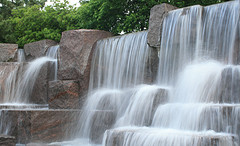Tea drinking may lower anxiety and blood pressure
Tea Drinking is the most widely consumed beverage in the world
In China, tea was valued for its medicinal qualities.
It has long been known that tea aids in digestion, which is why many Chinese prefer to consume it after their meal
There are four basic categories of Chinese tea and are hundreds are varieties
White tea is made from immature tea leaves that are picked shortly before the buds have fully opened
Green teas are not fermented during processing, and thus retain the original color of the tea leaves.
Grown in the hillsides of Hanghou, are the most famous green tea
"Red Tea" or black teas are made from fermented leaves, which accounts for their darker color
Popular varieties of black tea include Bo lei, a Cantonese tea often drunk with dim sum
Oolong teas are partially fermented, resulting in a black-green tea.
Examples of oolong tea include Soi sin, a bitter tasting brew cultivated in the Fukien province.
There is also a fourth category known as "scented teas," made by mixing various flowers and petals with green or oolong teas.
The best known among these is jasmine tea
White tea, are made with unripened tea leaves that are still covered with a downy, silvery fuzz, is getting quite popular
It has a cooling, slightly bitter, astringent flavour which many people enjoy: tea drinking
Consumption
of tea (especially green) is beneficial to health and longevity given
its antioxidant, flavanols, flavonoids, polyphenols, and catechins
content
Tea catechins have known anti-inflammatory and
neuroprotective activities, help to regulate food intake, and have an
affinity for cannabinoid receptors, which may suppress pain and nausea,
and provide calming effects
A new study supports prior evidence that tea drinking can not only reduce blood pressure, but calm anxiety, despite its caffeine content
Japanese
researchers tested two compounds found in tea — L-theanine, the amino
acid contained in tea leaves, and caffeine — and their effect in the body
when under stress.
They enlisted 14 subjects who underwent
three separate trials, in which they took L-theanine and a placebo,
caffeine and a placebo, or a placebo only.
The subjects were
then asked to complete mental activities under varying degrees of
stress, such as solving arithmetic questions with their non-dominant
hand submerged in a bucket of ice water
New Japanese research finds that a compound in tea known as L-theanine may lower anxiety and blood pressure. — Reuters
Ai
Yoto and her team from the University of Shizuoka found that L-theanine
significantly inhibited the blood-pressure increases in a high-response
group, which consisted of subjects whose blood pressure rose more than
average while performing a mental task after taking a placebo.
Caffeine
also had an effect on blood pressure, but to a lesser degree than
L-theanine. In addition, the L-theanine was shown to reduce
tension-anxiety scores on mood tests.
The study was published this week in the Journal of Physiological Anthropology.
In
a separate study published this January in the Archives of Internal
Medicine, Australian researchers found that people who drank three cups
of tea a day lowered their blood pressure levels by an average of two to
three points.
Meanwhile, flavonoids in tea are thought to improve the blood vessels’ tone and reduce body weight and abdominal fat.
A
Dutch population study also found that high tea consumption is
associated with a reduced risk of death from heart disease. —
AFP/Relaxnews
Tea drinking is an art in China and Japan
Tea Drinking is an art in China and Japan








